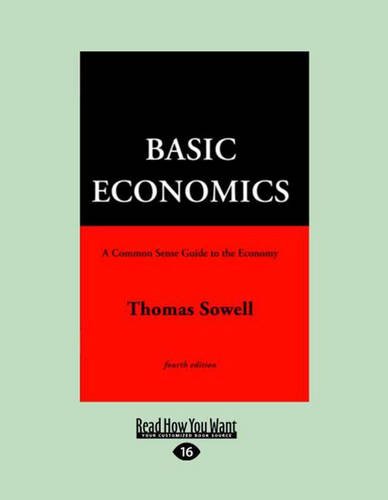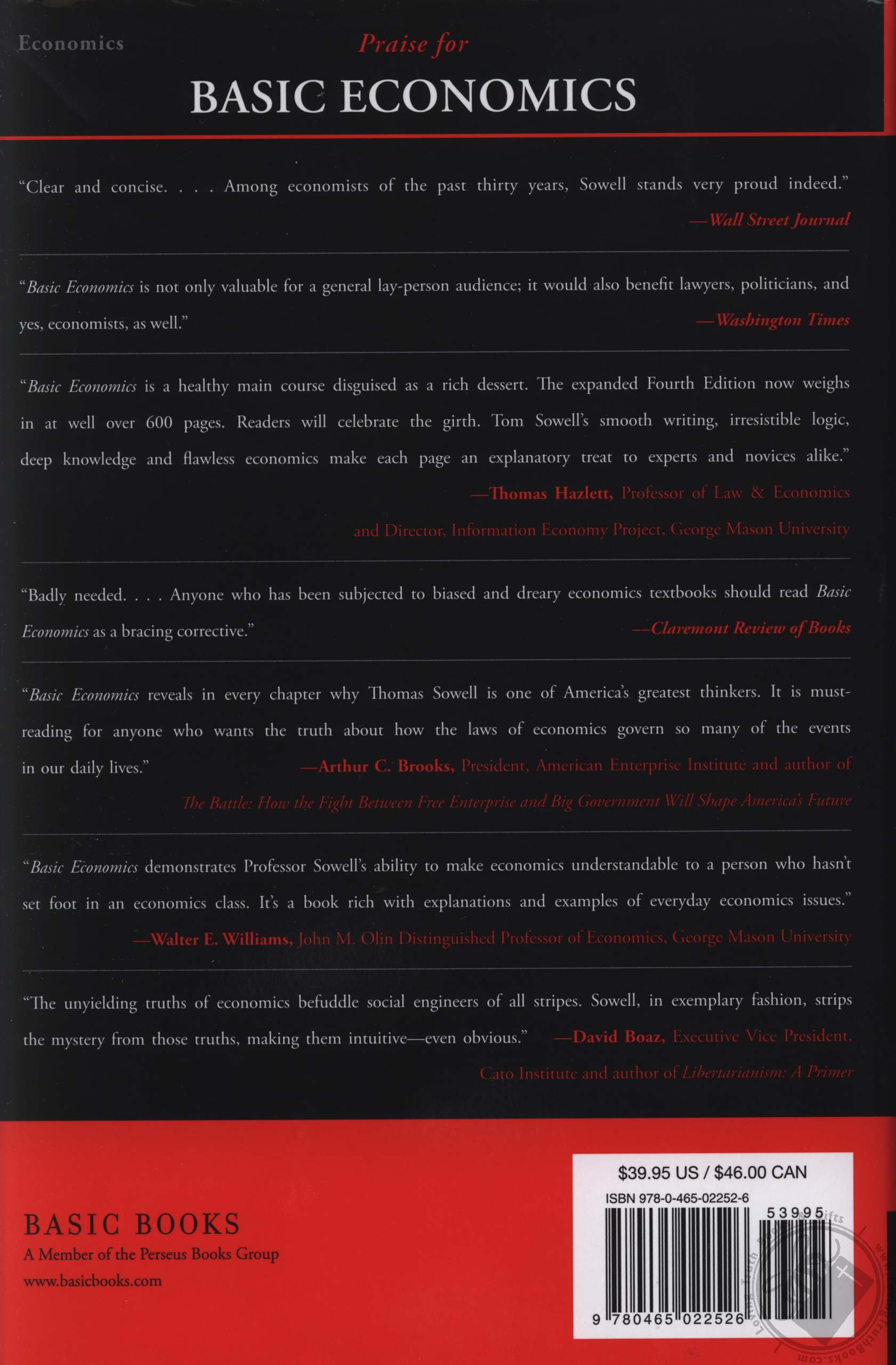
Most Americans believe that government intervention is necessary to ensure that there will be enough “affordable” housing. While the whole of the book is enlightening, Sowell’s discussions of affordable housing and income comparisons are particularly powerful.

In each of those sections Sowell rebuts a group of beliefs that are widely accepted despite their fallaciousness and incompatibility with the evidence. The bulk of the book consists of six chapters dealing with subjects where economic misunderstanding abounds: the urban economy, male-female comparisons, academia, income, race, and the Third World. Time and again, readers are shown that support for expanding government control arises from mistaken reasoning and interpretation of data.įirst is Sowell’s discussion of four core fallacies we frequently encounter in public-policy discussions: the zero-sum fallacy (ignoring that voluntary economic arrangements are positive-sum) the fallacy of composition (particularly that robbing Peter to pay Paul benefits society simply because it benefits Paul) the chess-piece fallacy (assuming that some authority can achieve desired results as though he were moving chessmen on a board, ignoring people’s desires and incentives) and the open-ended fallacy (that commitments to ever-more health care, safety, open space, and so on, are sensible in a world of scarcity).Įven if people read only that section, they would greatly benefit from Sowell’s logic.


It begins by quoting John Adams-“Facts are stubborn things and whatever may be our wishes, our inclinations, or the dictates of our passions, they cannot alter the state of facts and evidence”-then immediately argues for the importance of debunking economic errors because so many policies are based on false beliefs and fallacious thinking.Įconomic Facts and Fallacies exposes an array of widely held beliefs to careful logical scrutiny and evidence-evidence that is usually ignored by those who favor interventionist government policies. You don’t have to read far to find the focus of Thomas Sowell’s latest book, Economic Facts and Fallacies.


 0 kommentar(er)
0 kommentar(er)
